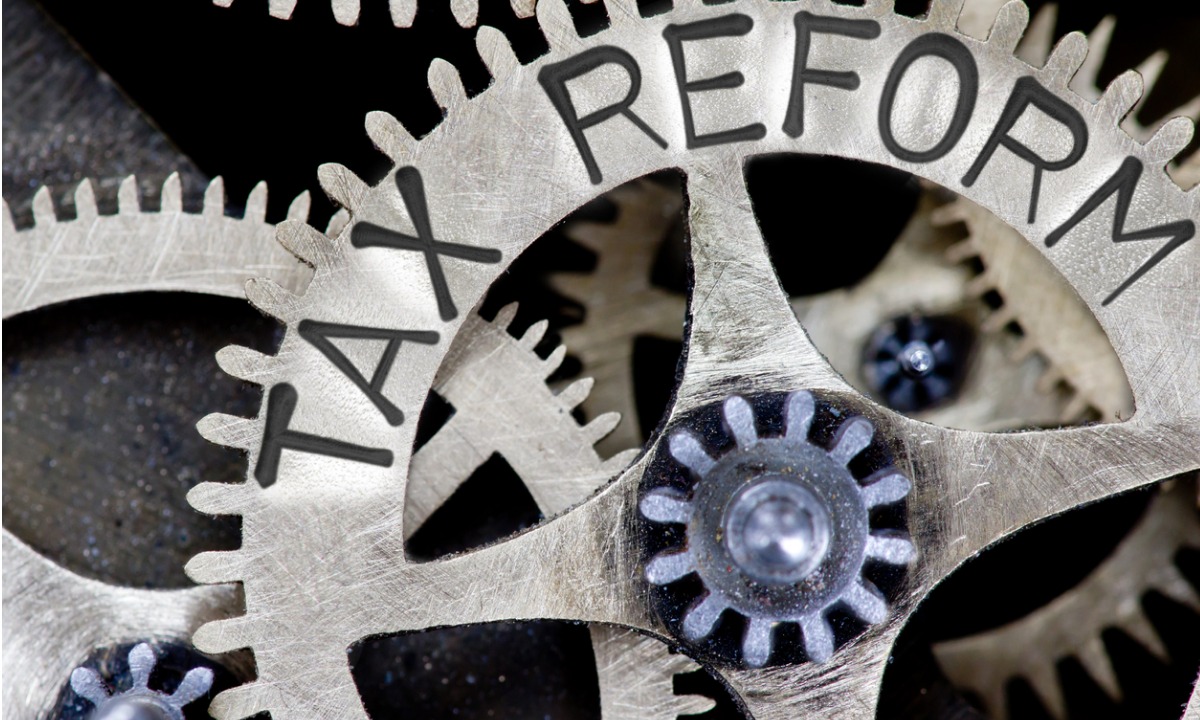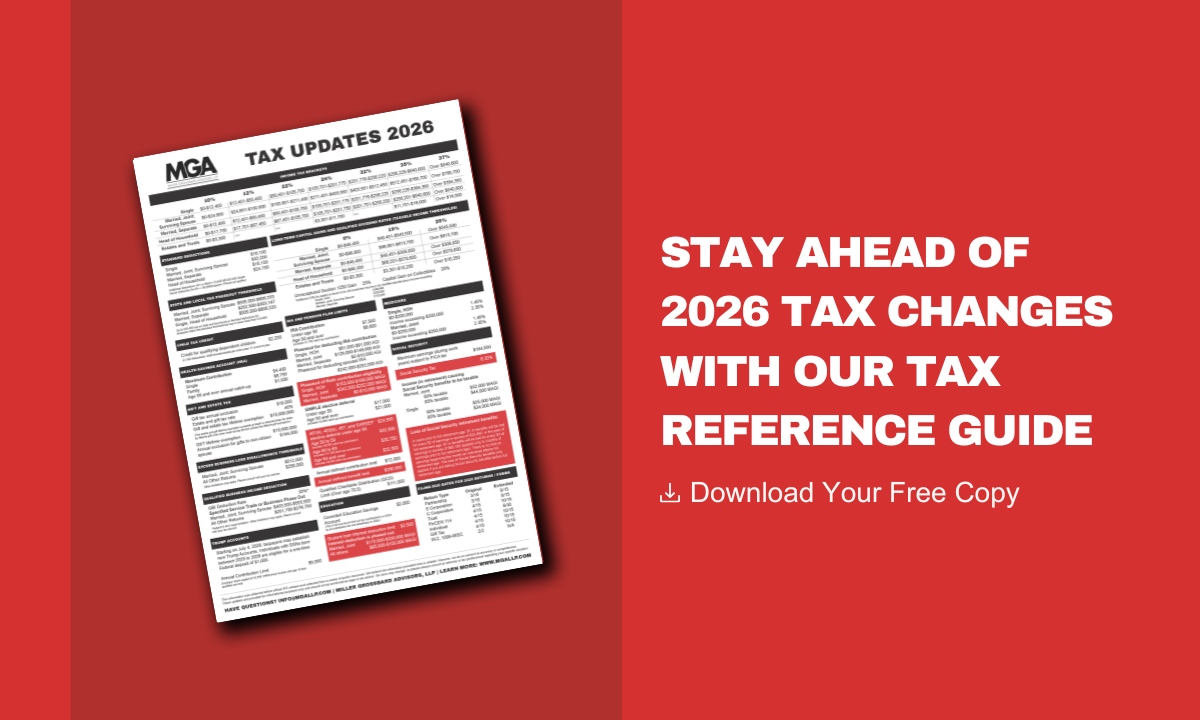There is no question that the Tax Cuts and Jobs Act brought sweeping changes to the tax planning landscape, and we at MGA are here to help you understand the most significant and complex changes. While many things stayed the same regarding bonus depreciation and like-kind exchanges, there are still a number of significant differences that are worth considering.
In this blog, we highlight the most critical tax rule changes for depreciation and like-kind exchanges, so you can be prepared before you make any big moves.
What Are the Tax Changes, and How Will They Affect You?
Bonus depreciation has always been a hugely beneficial tax planning tool, as it allows taxpayers to take immediate deductions for equipment that would otherwise have to be depreciated over longer periods. In the past, taxpayers could take 50% of the cost of a qualifying asset as bonus depreciation. However, under the new law, this allowance has been increased to 100%. This means that many kinds of equipment that would otherwise have a depreciable life of 15 years or less, can be deducted immediately, rather than depreciated over several years.
For taxpayers with company cars, it is essential to be aware that there are special restrictions on both normal and bonus depreciation. Although vehicles are generally assigned a five-year depreciable life, most company-owned passenger vehicles below 6,000 pounds are limited to $10,000 and $8,000 of normal and bonus depreciation in the first year, respectively. These limits fall with each successive year of ownership. Furthermore, there are additional limits on depreciation for vehicles with less than 50% business use. The rules around depreciation of company cars are surprisingly nuanced, so buying a new Cadillac for your staff to drive to lunch each day may not lead to the quick and easy tax savings you were hoping for!
Another notable change to the tax planning landscape is the restriction of like-kind exchanges to real estate. Like-kind exchanges are a type of transaction whereby gains (and losses) on the sale of an asset are deferred by adding the adjusted cost basis of the old asset to the basis of the replacement asset. The impacts of this new restriction are far-reaching and likely necessitate a blog post all their own, but there is one quick point worth making here. If you have been upgrading your company car every few years for the last several decades, now may be the time to upgrade again. This time, when you trade in the car, you will likely be able to take a tax loss (potentially reducing your tax liability) instead of rolling the old car’s basis into the new one.
Do Building Improvements Qualify for Bonus Depreciation?
Historically, most improvements to the inside of commercial real estate could be depreciated over 15 years (instead of 39 years) and had access to bonus depreciation, allowing the owner of a property to immediately expense 50% (and for a brief period at the end of 2017, 100%) of the cost of these improvements.
Under the new tax law, the handful of special property classifications that allowed bonus depreciation on these improvements was grouped into a single new category called Qualified Improvement Property, or QIP. Although the consolidation of the multiple types of improvement property into one category was a welcome simplification of the tax code, an error made by Congress when the law was drafted left out the language that would qualify QIP for bonus depreciation. This means that until further notice, interior improvements to commercial real estate must be depreciated over 39 years.
This is a massive oversight by Congress, and there is an expectation that this error will eventually be corrected, mainly because the intention was clear in early drafts of the law. Unfortunately, Congress has been bogged down in politics as usual, so it appears that the needed Technical Corrections bill will not arrive in time to be in effect for the 2019 filing season.
Your Goals Are Our Single Focus
If your tax planning for 2018 was built around taking bonus depreciation on improvements to commercial property, don’t despair! There may be other ways we can help you achieve the same end.
 We are here to make the complex simple, especially when it comes to your tax planning.
We are here to make the complex simple, especially when it comes to your tax planning.
.png?width=191&name=mgalogofinal-01%20(3).png)





